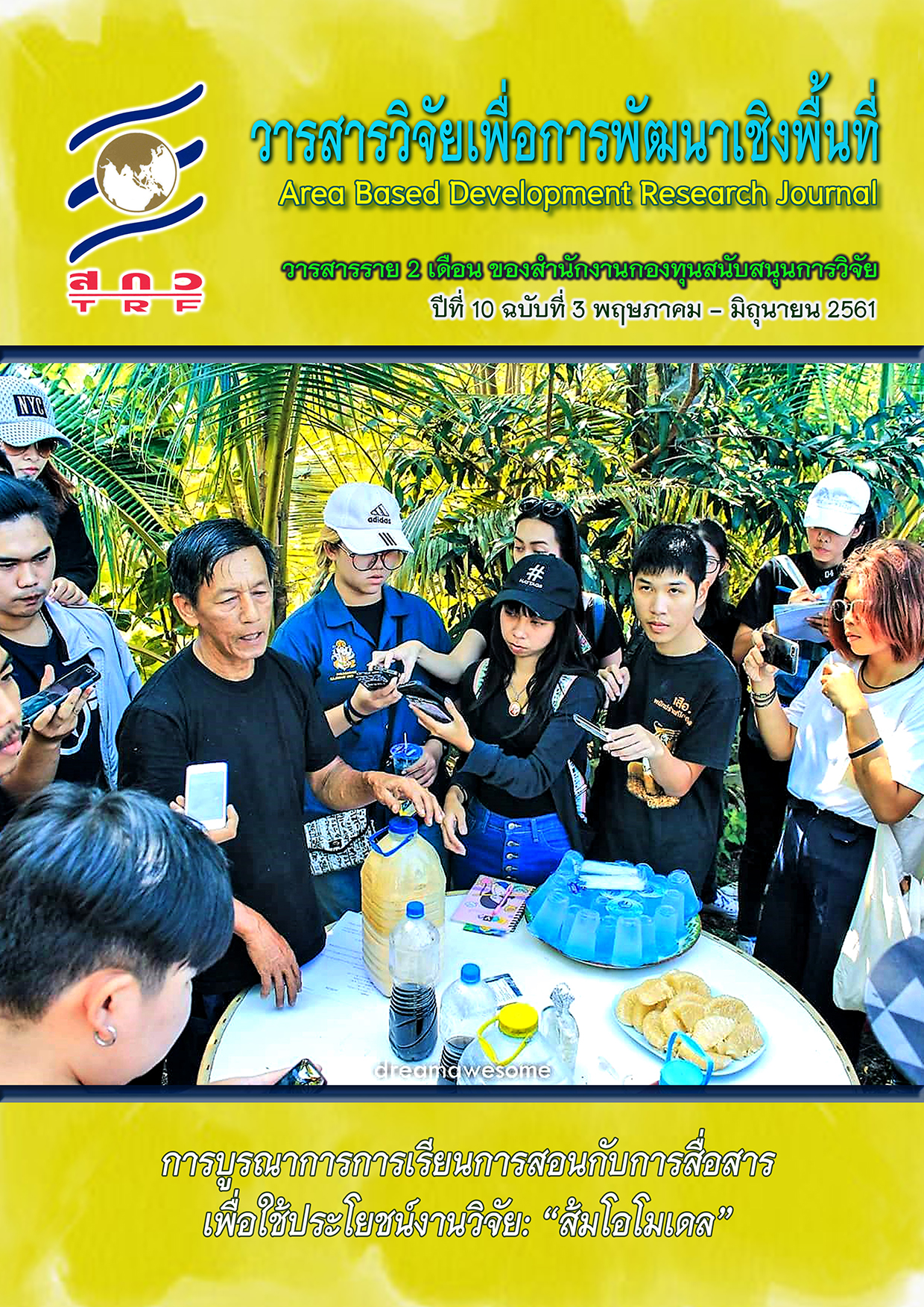กระบวนการขับเคลื่อนความมั่นคงทางอาหารผ่านผักพื้นบ้าน จังหวัดในเขตภาคเหนือตอนบน
Main Article Content
Abstract
This is a participatory action research. The objective was to examine the process that pushed forward food security through the cultivation and consumption of local vegetables. The research was conducted in two phrases. The first phrase focused on the situational assessment of food security at local and household levels in the upper northern provinces. The second phrase was on the study of development of a model for food security advancement through local vegetable cultivation in the pilot area. Sample of two phases, including chief executives of local administrative organizations, community leaders, knowledgeable local people, household members and organic farmers. Data collection tools were 1) food security questionnaires and Interview forms for community leaders, to gather the data related to policies, plans, and projects activities, which aimed to advance food security through local vegetable farming, 2) observation forms, 3) in-depth interview forms, and 4) focus group discussion form. The research tools were validated by three experts. The reliability of the questionnaires on food security was 0.83. The study found that only 44.1 percent of local administrative organizations in the upper northern provinces had put in place policies, plans, projects and activities related to community’s food security, which depended on the awareness of community leaders, the management, and the participation of people. Based on the analysis of the development of the model for food security advancement in the pilot area, it was found that the process comprised of sub-district development plans, enhancement of awareness about food security among organic farming members, utilization of the existing knowledge of groups of people, knowledge sharing, study visits, and initiation of community food stores which can be used as learning centers, thereby resulting in knowledge management on food security.
Article Details
Area Based Development Research Journal values copyright protection and licensing to safeguard author rights and facilitate the appropriate dissemination of research. Our policies ensure openness, accessibility, and attribution. Authors retain copyright ownership, and articles are published under a Creative Commons Attribution License (CC BY), allowing sharing, adaptation, and proper attribution. Authors have the freedom to publish under the CC BY license, granting broad reuse and distribution permissions. The journal supports posting articles on third-party repositories, adhering to institutional and funding restrictions. Author guidelines detail copyright and licensing requirements, empowering authors with knowledge about their rights and responsibilities. These policies cultivate an environment of collaboration, openness, and responsible sharing, benefiting authors and the research community while honoring intellectual property rights.


